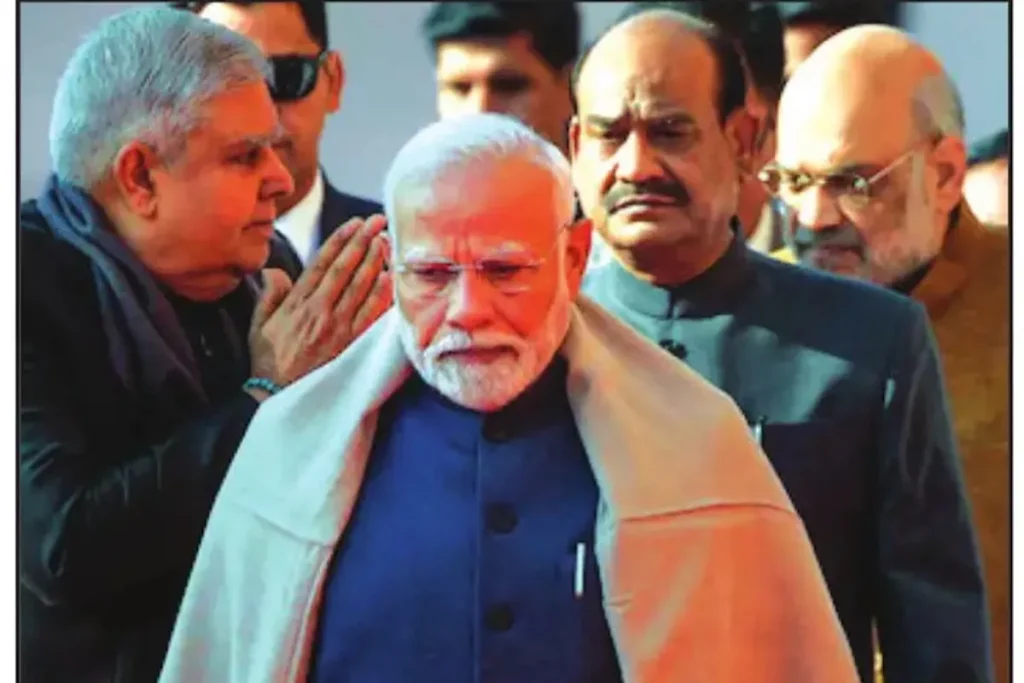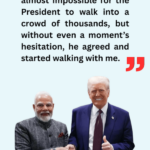By Dr Arun Mitra
War brings misery and deaths. ‘War is neither romantic nor a Bollywood film’ said former Army Chief Manoj Narvane while addressing at an event organised by the Cost Accountants of India at Pune. Diplomacy would be his first choice he added, ‘there is trauma among people living in the border areas, including children, who have seen shelling and have to run to shelters at night. For those who have lost their loved ones, that trauma will be carried through generations’ he said. The Post Traumatic Stress Disorder (PTSD) among the people who have seen gruesome scenes wakeup sweating after 20 years and need psychiatric care he further added. War should be the last option, diplomacy should take the lead.
That is why ceasefire between India and Pakistan was overwhelmingly welcomed by not only the peace activists but the people of the country as a whole. Those living in the border areas were much relieved at the announcement. Immediately after the decision was taken to attack the terrorist camps in Pakistan, it was realized that Pakistan will retaliate and it will not be a repetition of Balakot. Therefore the villages in the border areas were got vacated and people were shifted to the make shift camps. Life in such camps is always miserable.
This I can say from my own experience as a teenager during the 1965 war when our schools were got vacated, classes stopped and the people from villages adjacent to the border were shifted to our school. We were collecting food for them and supplying them in these new found so called home for them. With no privacy, no food of their choice, no proper shelter, no work and loss of school days for the children, I could feel how dreadful the war is. This is well known fact that life in the refugee camp is very difficult in any part of the world, howsoever developed that region maybe. Therefore when the ceasefire was reached, people heaved a sigh of relief.
It is in this background that much was expected from the Prime Minister’s speech on Monday night.. An important question that was already coming to people’s mind was how come US President Donald Trump got into the picture and held a press conference minutes before our Prime Minister’s speech? It was astonishing that he announced the ceasefire deal between India and Pakistan and made both the to agree to ceasefire when he threatened of no trade if they do not stop war. Narendra Modi who spoke after his press conference failed to refute what the US President had said.
This showed acceptance of Mr. Trump’s blatant intervention in the affairs of India and Pakistan and overpowering our understanding to sort out issues through bilateral talks. This understanding was reached in the Shimla agreement or 1972. But unfortunately the prime minister in his speech did not utter a single word about this. His whole speech was centred on bashing of Pakistan and also telling that India would keep on using force in future as well if required. This was time he should have spoken of how to strengthen the ceasefire instead and convey India’s commitment for peace in clear terms.
As always the Indian forces did excellent job in targeting the terrorist camps on the very first day on 7th May. As was said in the press conference by the Principal Secretary Mr Vikram Misri that our job was to only target the terrorist camps and we have no intention to kill the civilian people or even target the military areas of Pakistan. However retaliation by Pakistan after 7th May made the situation worse.
Prime Minister would have moved forward as a bigger leader of the South Asia if he had talked of strengthening peace in South Asian region starting from lasting ceasefire between India and Pakistan. But he lost the opportunity. His speech full of rhetoric was only to target his electoral base by creating jingoism. He should have talked of strengthening SAARC so that all the South Asian countries together sort out the issues where India could put pressure on Pakistan to break the terrorist apparatus.
Whereas India developed as secular democratic country after independence, Pakistan has been under the army rule for a long time as a theocratic state. Army officers control the big business and they are the big land owners in Pakistan. Therefore we have to move cautiously in the affairs with a semi-democratic state.
During the attack on the Tajmahal Hotel in Mumbai on November26, 2008 India successfully gave evidence of Pakistan’s involvement in the attack. Therefore when Kasab was sentenced to death and hanged, there was hardly and hue and cry anywhere in the world. The present Indian government should have done the same now and given evidence to Pakistan about the terrorists who killed innocent tourists in Pahalgam. This would have increased our credibility and strengthened India’s position.
Anyhow it is never too late. Ceasefire is still on, even though on feeble grounds but we can make it strong. Both the countries should act responsibly for that. For Pakistan it is a larger task to convince the army. The civilian government and the civil society has to raise strong voice for good neighbourly relationship.
India should take lead in strengthening SAARC. Continue the process of dialogue under any circumstances. South Asia should develop common security system. Pakistan should be convinced to agree for no first use of nuclear weapons as its nuclear doctrine through the joint meetings of South Asian countries. (IPA Service)

 Narendra Modi Is Having A Difficult Time In Dealing With His Good Friend Trump
Narendra Modi Is Having A Difficult Time In Dealing With His Good Friend Trump 